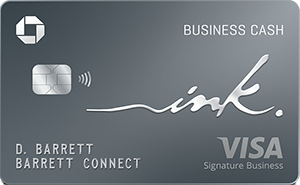The growth of small and medium enterprises (SMEs) is vital for economic development in the Gulf Cooperation Council (GCC) countriesGCC. In recent years, there has been a significant shift towards Shariah-compliant financing, which adheres to Islamic principles and avoids interest-based transactions.
Shariah-compliant financing has gained substantial traction in the GCC countries. This form of financing adheres to the ethical and moral guidelines prescribed by Islamic law, which prohibits interest (riba), excessive uncertainty (gharar), and investments in businesses that are considered haram, such as those involving alcohol, gambling, or pork. Instead, Shariah-compliant financing focuses on profit-and-loss sharing, asset-backed financing, and ethical investment.
Shariah-compliant financing impact on Attracting Global Investment
The global appeal of Shariah-compliant financing extends beyond the GCC, attracting investors from diverse backgrounds who are interested in ethical and socially responsible investment opportunities. The growth of Islamic finance has led to the development of various financial instruments, such as sukuk (Islamic bonds), that appeal to both Muslim and non-Muslim investors seeking ethical investment options.
GCC countries have established themselves as leading hubs for Islamic finance, with cities like Dubai, Riyadh, and Manama becoming centers for Shariah-compliant financial services.
Shariah-Compliant SME Financing Options in the GCC
1. Murabaha (Cost-Plus Financing)
Murabaha is where the financial institution purchases goods and sells them to the SME at a cost-plus profit margin. The SME repays the amount in installments over an agreed period. The profit margin is disclosed upfront, ensuring transparency and compliance with Shariah principles.
2. Mudarabah (Profit-Sharing)
In a Mudarabah arrangement, one party provides capital (the financier), while the other provides expertise and management (the SME). Profits generated from the business venture are shared according to a pre-agreed ratio, while losses are borne solely by the capital provider. This structure encourages prudent investment and aligns the interests of both parties.
3. Musharakah (Joint Venture)
Musharakah involves a partnership where both the financier and the SME contribute capital and share profits and losses according to their equity share. This joint venture structure fosters a collaborative approach, with both parties actively involved in the business’s success.
4. Ijara (Leasing)
Ijara is a leasing arrangement where the financial institution purchases and leases an asset to the SME for a specified period. The SME pays rental payments, and at the end of the lease term, the SME may have the option to purchase the asset. This option allows SMEs to use assets without needing large upfront capital investments.
5. Sukuk (Islamic Bonds)
Sukuk are Shariah-compliant bonds representing ownership in tangible assets, usufructs, or services. SMEs can issue Sukuk to raise capital from investors, who receive returns derived from the underlying assets’ performance. Sukuk offer an alternative to conventional bonds, providing liquidity and investment opportunities compliant with Islamic law.
6. Istisna (Construction Financing)
Istisna is a contract for manufacturing or construction where the financial institution agrees to finance the production of goods or construction projects as per the SME’s specifications. The SME pays the agreed price in installments or upon completion. This structure is particularly useful for SMEs involved in manufacturing or construction.
7. Qard Hasan (Benevolent Loan)
Qard Hasan is an interest-free loan extended to SMEs for social welfare purposes. The borrower is required to repay only the principal amount without any additional charges. This type of financing is offered by Islamic charitable organizations or financial institutions as part of their corporate social responsibility initiatives.
8. Tawarruq (Commodity Murabaha)
Tawarruq involves the SME purchasing commodities from a financial institution on a deferred payment basis and subsequently selling them to a third party for immediate cash. This structure provides liquidity to SMEs while ensuring compliance with Shariah principles. It is often used for working capital needs.
9. Venture Capital and Private Equity
Shariah-compliant venture capital and private equity funds provide equity financing to SMEs in exchange for ownership stakes. These funds follow Islamic investment guidelines, focusing on ethical and socially responsible businesses. This option is suitable for SMEs with high growth potential seeking substantial capital investment.
10. Crowdfunding
Shariah-compliant crowdfunding platforms allow SMEs to raise funds from a large number of small investors. There are mainly 2 types of crowdfunding – debt and equity based. On the debt side, the majority of platforms are Murabaha bases whislst on the equity side it is either These platforms operate on principles such as profit-sharing (Mudarabah) or equity participation (Musharakah). , providing an alternative to traditional financing methods..




